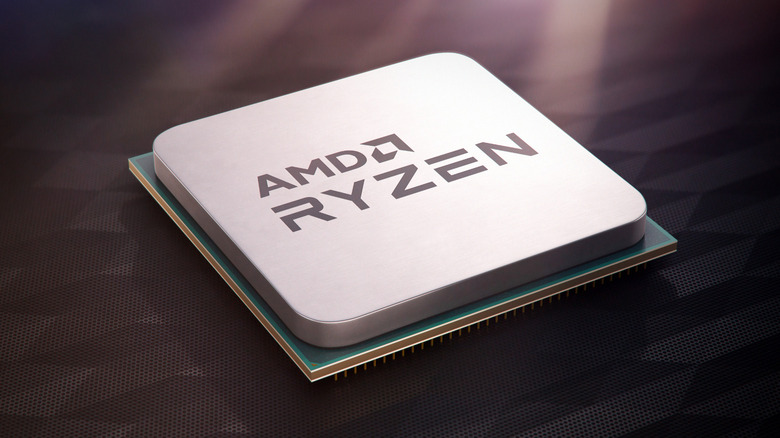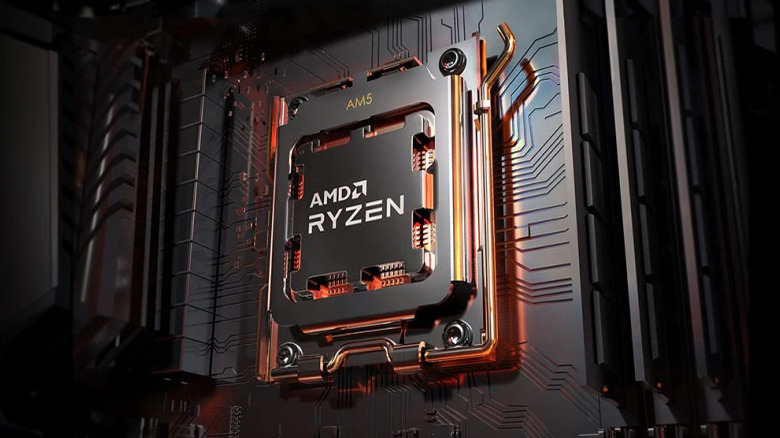AMD's Ryzen 7000 CPUs Officially Unveiled - Here's When You Can Buy Them
Over 10 years ago, we believed CPUs would run out of room for additional, smaller transistors, ultimately negating Moore's Law, the long-held principle that computers would nearly double in power every two years. As it turns out, Moore's Law is still true in 2022, meaning desktop processors are only getting more powerful as time wears on. Both AMD and Intel have remained in a headlock, competing to produce the most efficient and best-performing CPUs for gaming, visual design, and other demanding tasks.
According to Tom's Hardware, Intel currently has the lead on AMD in terms of overall performance and quality, offering a number of performance-boosting features that can make certain games run much faster. Likewise, AMD's Zen 3 chips are formidable by comparison, but don't have quite as robust of single-core performance — an issue that has consistently plagued AMD's lineup. The Ryzen hardware has also run into some issues with Windows 11, though those were ultimately fixed (via Microsoft).
But Zen 4 chips are already on the horizon as of August 29, according to a press release from AMD. Much like its previous 5000-series and 6000-series Zen 3 CPUs, AMD is keeping its price range at a reasonable level, offering its most powerful 16-core AMD Ryzen 9 7950X for an MSRP of $699. By comparison, this is slightly cheaper than a current-gen Intel Core i9-12900KS with an MSRP of $799. That said, we're already looking forward to the announcement of Intel's next chipset, codenamed Raptor Lake, but it's currently rumored to show up in the middle of October — potentially a full month after AMD's Zen 4 chipsets begin rolling out.
Decent performance gains and affordable prices
AMD's Zen 4 processors don't look revolutionary at first glance. Single-core performance may be the most pressing concern for gamers, and AMD itself claims that its Ryzen 9 7950X's single-core performance is only effectively getting a 29% boost over its predecessor, the Ryzen 9 5950X. It should go without saying that if you already have a powerful Zen 3-powered gaming machine, you won't need to run out and buy the latest Zen 4 desktop to keep up.
But it could be worth investing in if you're interested in 3D imaging software such as V-Ray Render, which AMD claims are receiving a 57% performance boost. Don't let the relatively high 170W TDP fool you, the 7950X is rated for up to 47% more power efficiency. This is evidently due in part to borrowed power management processes first developed alongside AMD's mobile processor lineup. The lineup itself spans four processors and four motherboard chipsets, some of which will be launching later than others. It sounds like the bottom-tier AMD Ryzen 5 7600X will still be quite powerful, featuring six cores, 12 threads, a 30MB cache, and up to 5.3 GHz of raw power — all at a baseline MSRP of $299.
You'll need to plug your 7000-series AMD chip into a Zen 4-compatible motherboard, though only two of the four total Zen 4-compatible chipsets will be available when these CPUs begin rolling onto store shelves on September 27. Gamers can expect plenty of power from the AMD X670 and souped-up X670 Extreme chipsets (which will launch alongside Zen 4), but creatives may need to wait until October to begin working with the more enterprise-focused AMD B650 and AMD B650E Zen 4 chipsets.

